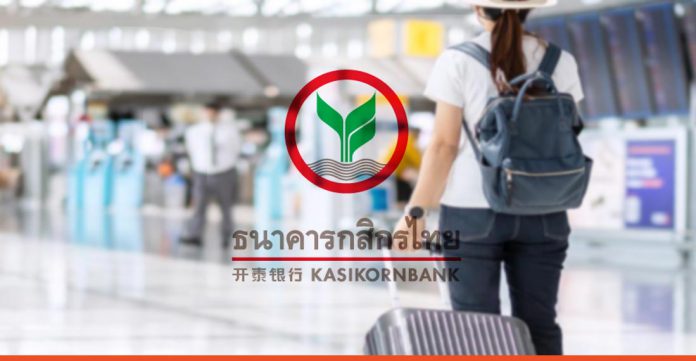KASIKORN RESEARCH CENTER (KResearch) has kept its Thai economic growth projection intact at 2.6 percent for the base-case scenario, with its projection range adjusted to 0.8-3.0 percent, from the previous 0.0-4.5 percent.
Nattaporn Triratanasirikul, KResearch Assistant Managing Director, said that the new projection range reflected the reduced downside risks in the Thai economy due to significant progress in vaccine distribution and economic stimulus measures continuously implemented in core economies. The global economy may have bottomed out, which is a positive development for overall Thai exports.
Meanwhile, the upper end of the projection range is lower, reflecting that it may be later rather than sooner before the Thai economy emerges from the doldrums. Any Thai economic recovery may also be slower than that of the global economy, as Thailand is heavily reliant upon international tourism receipts. Much will therefore depend on progress in the rollout of COVID-19 vaccines and the country’s reopening to international tourists.
Kevalin Wangpichayasuk, KResearch Assistant Managing Director, said that an estimate of COVID-19 vaccination rates in 10 of Thailand’s key sources of foreign tourists through September 2021 has led KResearch to project that the number of tourist arrivals from these countries/regions (namely China, Western Europe, the US, Russia, and Asian countries including some ASEAN nations) may reach approximately 1.9 million during the last quarter of 2021.
Altogether, international tourist arrivals for full-year 2021 are likely to reach 2 million provided that a COVID-19 vaccine passport is implemented or international travel restrictions are eased at some point.
To build confidence among international tourists wishing to visit Thailand, personnel in the tourism industry must be vaccinated. An assessment of the number of hotel workers in 20 provinces that are heavily dependent on foreign holidaymakers shows that at least 220,000 doses of COVID-19 vaccine need to be given before October. At this time, relevant government agencies are considering this matter, and we consider this plan feasible if vaccine supplies can be secured as planned.
Meanwhile, there are a number of factors that need close monitoring, as they will likely affect the economy going forward. These include vaccine rollout nationwide, guidelines for reopening the country to foreign visitors, global crude oil prices, rising inflationary pressure and the government’s new economic stimulus measures. Although COVID-19 vaccinations have yet to be given to enough of the population to generate herd immunity, any potential future outbreak is expected to be less severe than previous waves.
In addition to the aforementioned issues, Thanyalak Vacharachaisurapol, KResearch Deputy Managing Director, noted that the problem of high household debt must be addressed immediately. A recent survey conducted by KResearch indicated that Thai households had concerns over declining income, the hefty cost of living and high debt burdens.
Of those surveyed, 10.8 percent reported that the present crisis has threatened their financial stability. Therefore, renewals of stimulus packages to aid households and SMEs are still necessary. Meanwhile, these measures can be implemented more precisely as the debts under the relief programs of financial institutions seem to have passed their trough, together with the Thai economy.





